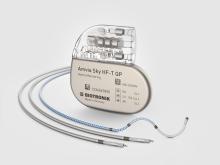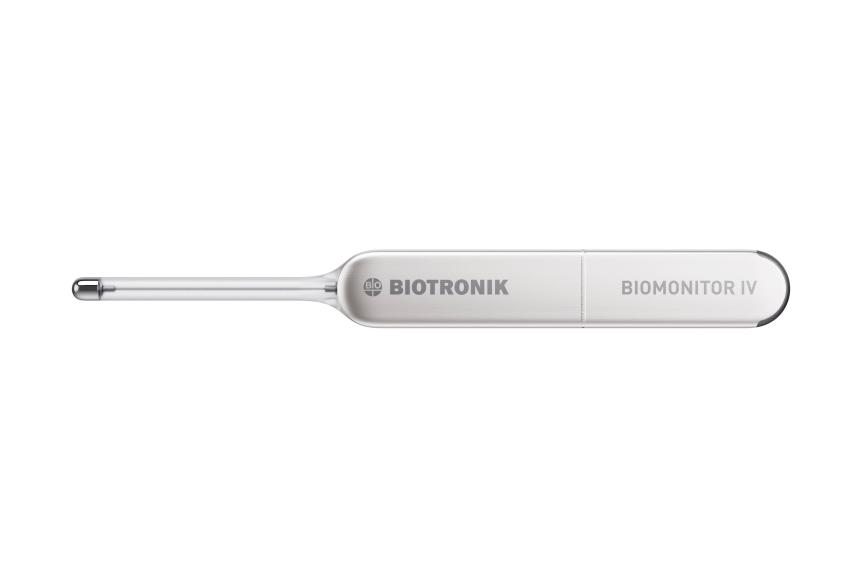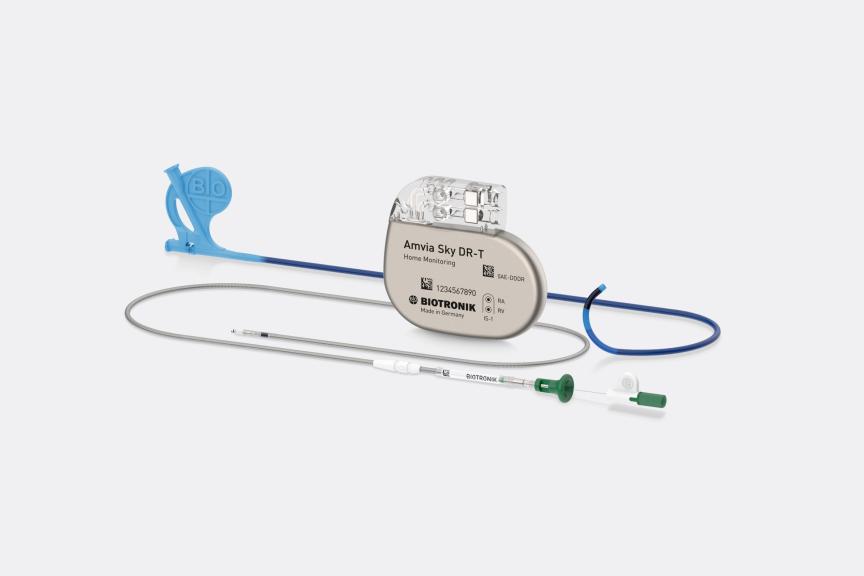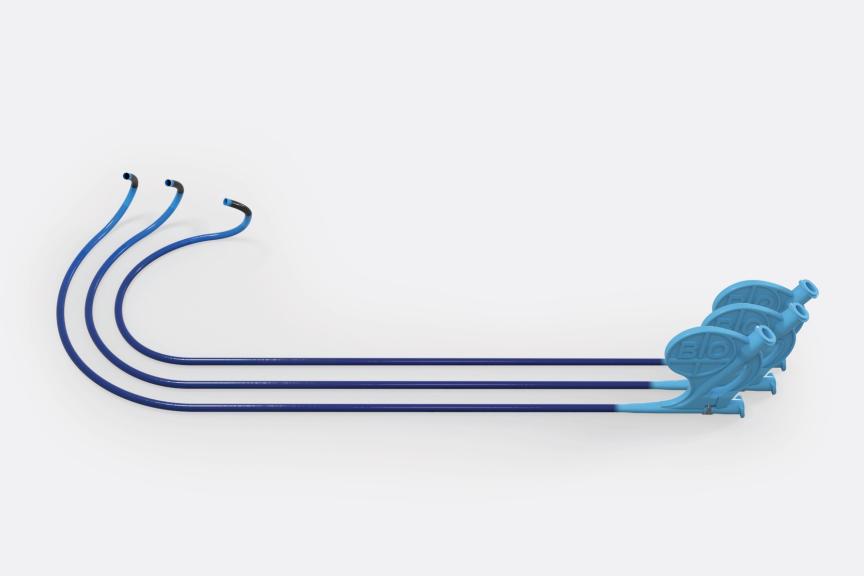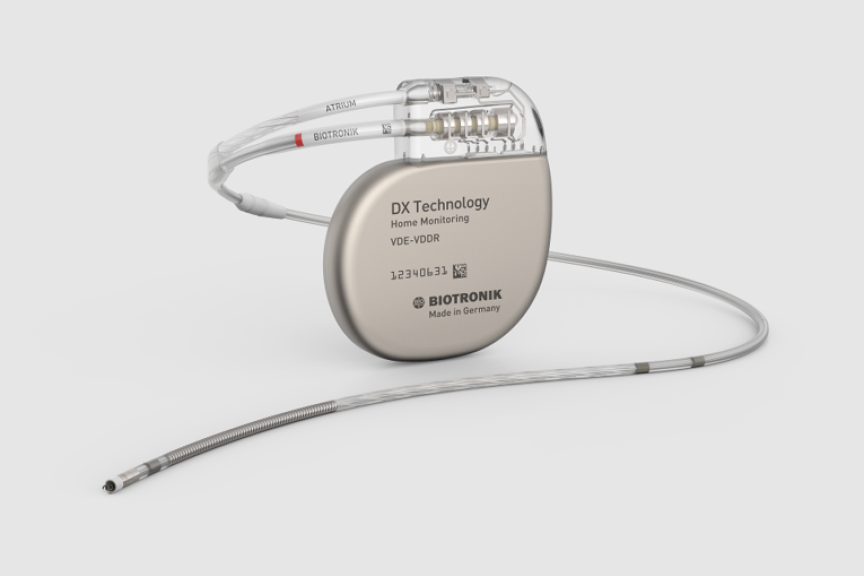B3 Clinical Study Results Reveal that Closed Loop Stimulation (CLS) Rate-Adaptive Pacing Delays Subclinical AF in Sinus Node Disease (SND) patients Late-Breaking Science at the European Heart Rhythm Association (EHRA) 2024 confirms that CLS significantly reduces Subclinical AF and Stroke by 16% in patients with SND1
During a Late-Breaking Session at the annual meeting of the European Heart Rhythm Association (EHRA), Dr. Ennio C. L. Pisanò, Vito Fazzi Hospital, Lecce, Italy, unveiled groundbreaking clinical findings from the randomized, multicenter B3 study1 regarding the impact of CLS on the incidence of Subclinical AF in SND patients. CLS is a unique rate-adaptive algorithm that is able to detect not only movement but emotional stress, physical stress, or physical activity. In essence, CLS is an impedance-based sensor that translates changes in cardiac contractility to increase heart rate –mimicking a healthy sinus rate.2
Main results:
- In patients with SND and indication for dual-chamber pacing, CLS reduced the risk of subclinical AF and Stroke by 16% compared to conventional accelerometer-based pacing.
- CLS pacing achieved this reduction delaying the time to first subclinical AF (AHREs between >6 minutes and <7 days).
- SND patients with preserved atrioventricular conduction and no history of AF benefitted the most from CLS pacing.
“Atrial high-rate episodes (AHREs) raise concerns due to their inherent increased thromboembolic and cardiovascular risks and because there is an unclear treatment strategy. The B3 study results brings great news for Sinus Node Disease patients with indication for dual-chamber pacing thanks to CLS, a rate-adaptive algorithm that has proven to delay new onset of AHREs, especially those of long duration.” commented Dr. Giovanni Luca Botto, member of the B3 Steering Committee and member of the EHRA Board on the results. “For the first time, we've substantiated the clinical benefits of CLS for patients with Sinus Node Disease. The study underscores the necessity of activating CLS atop DDD pacing, offering pacemaker or ICD patients who require dual-chamber pacing additional protection,” added Dr. Ennio C. L. Pisanò, member of the B3 Steering Committee.
The B3 trial enrolled 1,390 patients across 53 centers in Europe and the Asia-Pacific region, with a three-year follow up. It is the first large randomized clinical trial that evaluated the benefits of CLS in terms of clinical endpoints such as clinically relevant atrial fibrillation (AF) and stroke.
It is estimated that 40% of SND patients receiving ICD or dual-chamber pacemakers develop asymptomatic subclinical AF episodes.3 Subclinical AF poses a significant health concern, elevating a 2.5-fold risk of ischemic stroke4, heart failure, and other cardiac complications.3 It also serves as a predictor for clinical AF and heart failure, associated with increased mortality.4 As the treatment with oral anticoagulation is controversial due to the inherent risk of bleeds4, it is critical to ultimately delay subclinical AF.
“The B3 study brings compelling evidence that our unique impedance-based myocardial contractility sensor (CLS), brings additional long-term benefits for cardiac device patients with clear clinical impact: it is the only pacing mode able to delay the onset of AF,” says Dr. David Hayes, Chief Medical Officer, BIOTRONIK, Inc.
-END-
References:
- Pisanò, E. C. L. et al. Clinical Benefits of the Closed Loop Stimulation in Sinus Node Disease (B3). Presentation at EHRA, April 9, 2024.
- Zecchi P, Bellocci F, Ravazzi AP, Diotallevi P, Audoglio R. Closed Loop Stimulation: A new philosophy of pacing. Progress in Biomedical Research. 2000;5:126-31.
- Park et al. Subclinical Atrial Fibrillation Burden and Adverse Clinical Outcomes in Patients With Permanent Pacemakers. Stroke AHA. 2021;52:1299–1308.
- Healey JS, Connolly SJ, Gold MR, Israel CW, van Gelder IC, Capucci A, Lau CP, Fain E, Yang S, Bailleul C, Morillo CA, Carlson M, Themeles E, Kaufman ES, Hohnloser SH. Subclinical atrial fibrillation and the risk of stroke. N Engl J Med 2012;366(2):120-9.
Download Our CLS Media Kit
About BIOTRONIK:
At BIOTRONIK, patient well-being is our top priority and has been for 60 years. BIOTRONIK is a leading global medical technology company with products and services that save and improve the lives of millions suffering from heart and blood vessel diseases as well as chronic pain. Driven by a purpose to perfectly match technology with the human body, we are dedicated innovators who develop trusted cardiovascular, endovascular and neuromodulation solutions. BIOTRONIK is headquartered in Berlin, Germany, and is represented in over 100 countries.
